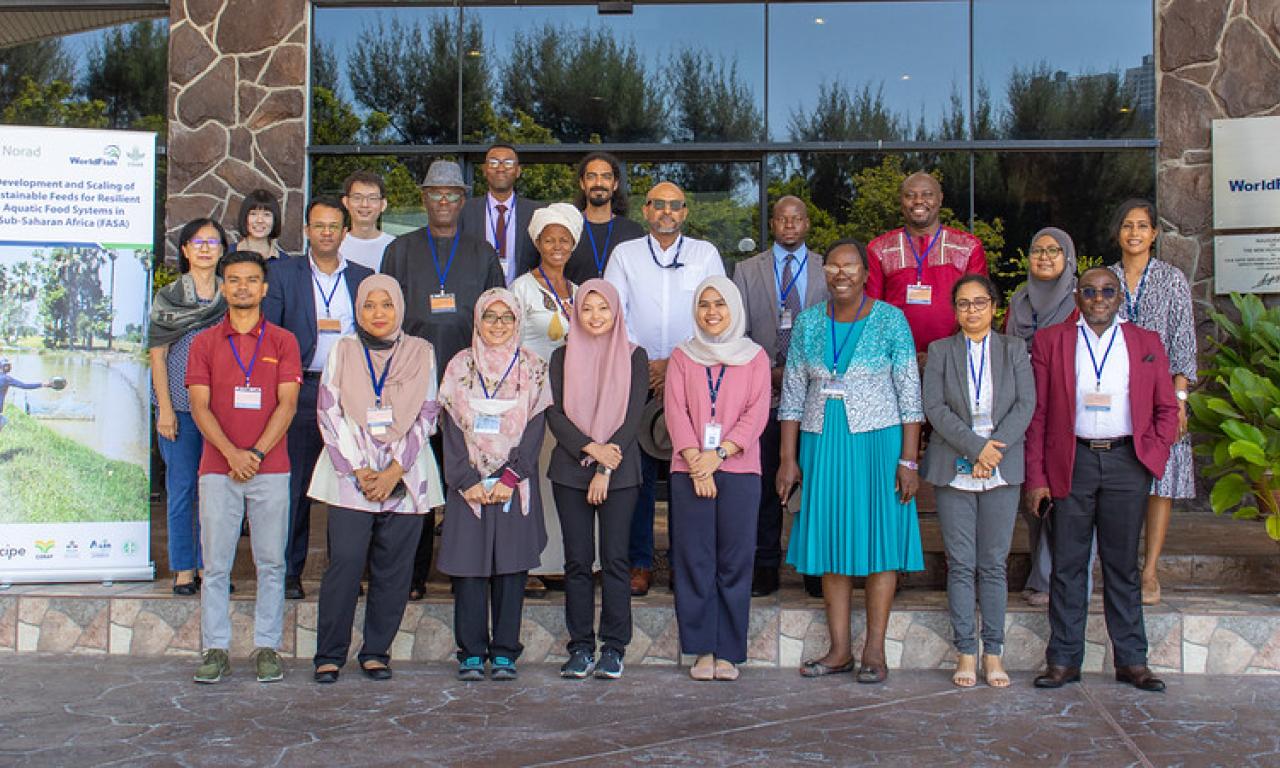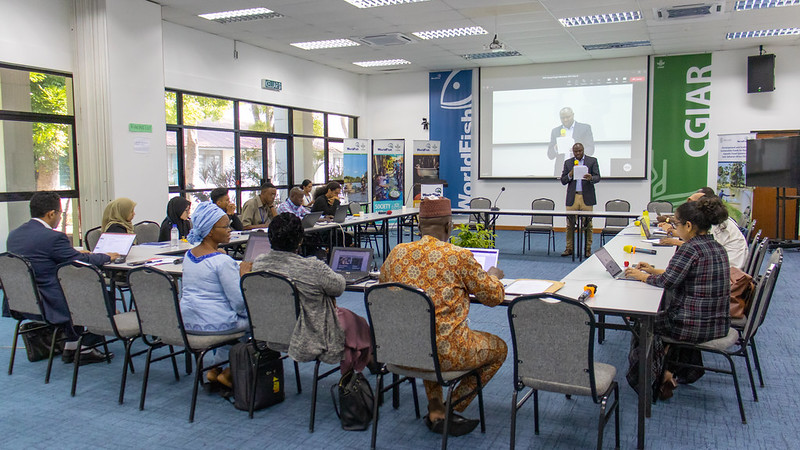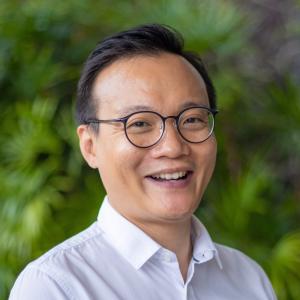
- Aquatic feeds constitute up to 70 percent of variable production cost of aquaculture.
- The FASA project aims to develop cost-effective, nutrient-rich aquatic feeds by utilizing novel and locally-sourced ingredients in Kenya, Nigeria and Zambia, leading to increased income, improved food security and reduced waste and pollution.
- Partners from Kenya, Nigeria, Sweden and Zambia attended the inaugural FASA workshop at WorldFish Headquarters in Penang, Malaysia, to discuss the project's overarching objectives and specific activities within each country.
Aquaculture in low-income countries faces a significant hurdle – the cost of aquatic feeds, which can constitute up to 70 percent of variable production expenses. As the aquaculture industry continues to grow, the demand for affordable and high-quality aquatic feeds will escalate, particularly among smallholder fish farmers seeking enhanced productivity. However, existing commercial aquatic feeds bear a heavy environmental toll and remain out of reach for many smallholders due to their steep prices and accessibility limitations.
The WorldFish-led Development and Scaling of Sustainable Feeds for Resilient Aquatic Food Systems in Sub-Saharan Africa (FASA) project funded by the Norwegian Agency for Development Cooperation (NORAD) aims to develop cost-effective, nutrient-rich aquatic feeds by utilizing novel and locally-sourced ingredients in Kenya, Nigeria and Zambia, leading to increased income, improved food security and reduced waste and pollution.
Partners of the FASA project from Kenya, Nigeria, Sweden and Zambia convened at WorldFish headquarters in Penang, Malaysia, for the inaugural FASA workshop to discuss the project’s overarching objectives and specific activities within each country.
Leveraging the expertise of a broad range of partners

The workshop provided an opportunity for in-person participation and interaction by representatives from the West and Central Africa Council for Agricultural Research and Development (CORAF), the International Centre of Insect Physiology and Ecology (ICIPE), Swedish University of Agricultural Sciences (SLU), Aller Aqua Zambia Limited, Includovate and NAGI Enterprise, as well as WorldFish staff based in Malaysia and Zambia.
The first day of the workshop witnessed presentations from each partner organization, facilitating a deeper understanding of their capacities, experiences and work plans crucial for delivering the project’s goals.
Resulting from the intensive two-day workshop, participants identified priorities and opportunities within each country. A refined implementation plan was crafted, poised to amplify the project’s effectiveness in creating more resilient aquatic food systems in Sub-Saharan Africa through sustainable aquatic feeds.
“The collaborative environment established a framework for designing sustainable aquatic feeds that will fortify aquatic food systems in Sub-Saharan Africa,” said Rodrigue Yossa, WorldFish senior scientist and project lead.
The participants also embarked on visits to the Fisheries Research Institute at Pulau Sayak and the Department of Fisheries’ Aquaculture Expansion Center at Jitra, both in Kedah. These excursions aimed to glean insights into Malaysia’s support for the aquaculture sector and familiarize participants with the infrastructure and management strategies.
